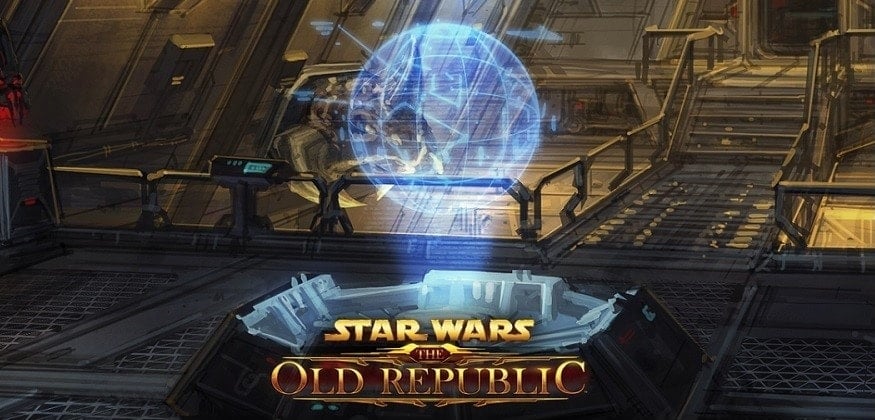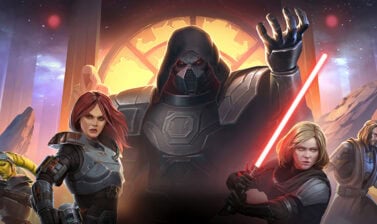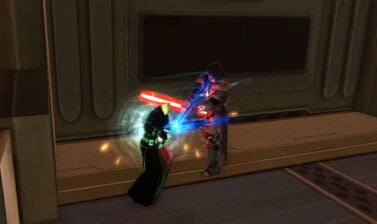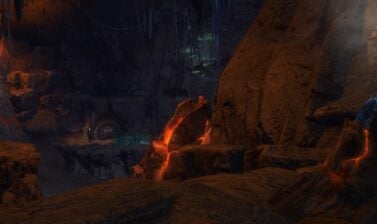In several very long posts on the official SWTOR Forums , game director Keith Kanneg, creative director Charles Boyd and community manager Eric Musco explained how feedback works for the dev team. If you are wondering how they scan and read all of the posts you leave for them in the forums or where else they draw valuable insight and community information, check the texts below.
Eric Musco’s message
Hey folks,
As mentioned above, Keith, Charles, and I will make posts in this thread about how we manage/use player feedback in our roles. This is a pretty extensive topic so these posts may be a bit long! I’ll kick this party off.
Let’s start by talking about my role as Community Manager. Understanding and using player feedback is a critical part of my job. I participate in a fair amount of business, design, and leadership meetings and my role is to act as a litmus test for the players. Will players like the changes, not like the changes, where will the challenges be, how do we message it, will it impact all players or only a subset, and more. I help ensure the decision makers (such as Keith and Charles) understand the impact their decisions will have on the playerbase.
With that as a backdrop, let me talk about where and how we gather feedback. One of the main reasons we gather feedback from so many sources is to ensure we are covering as many types of players as possible. Players come from all walks of life and playstyles and so it is extremely important we understand and consider everyone in our discussions. An example would be these very forums. Those of you who post here represent a small percentage of the overall player-base, are all subscribers, and lean towards a handful of specific, highly engaged playstyles. If we only looked at the forums, it would cover a narrow band of feedback. This in no way diminishes the immense value we garner from your participation here, so please don’t take that as a slight. Now let’s talk about some of the various places we get feedback!
The Official Forums and SWTOR Subreddit
I will put the two of these together since they are treated fairly similar. We all read them every day, multiple times a day. It is extremely common that we will link threads to each other in email or internal chats. We will use these threads as conversation points in meetings and I will include them in various reports that I send up to the team. Bug reports come from both of those sources which is incredibly valuable to us. Lastly, I use both the forums and Reddit to have private conversations with folks about various issues including harassment, exploit reports, etc.
Social Media
Most of the feedback we receive here comes from Twitter, and it tends to be a bit more broad in the information we are getting. That is, we don’t commonly receive “this specific thing has an issue,” and instead will receive “I think this new XXX is really good/bad because of YYY.” Twitter is also a great resource for service level feedback, such as when we have server/web issues. Social media is also a great source of sharing user-generated content and things from our Influencers and various content creators!
Influencers
As many of you know, we have a collection of content creators who are part of our Influencer Program. We gather feedback from them through multiple means. First, we watch/read/listen to their content. Whether it is a blog, livestream, or podcast we try to catch as much of their great content as we can. Second, I am in fairly constant communication with them through multiple means: email, forums, skype, twitter, etc. Lastly, the Influencer group is under NDA with us and so that provides some other unique opportunities to work with them and gather feedback!
Focus Groups
We host focus groups for a range of topics and we do it at all stages of development. As early as when things are in the “idea phase” all the way up to playable. Focus groups allow us to get feedback in a controlled manner and more importantly, allow us to ensure we are getting feedback from a very diverse set of players. From the most hardcore to the most casual, we are able to capture all playstyles.
There are many more places where feedback comes from such as PTS, data analytics, etc. I hope the above examples outline that we gather feedback from multiple places to get a full picture of player opinion. Again, I wanted to really focus in on my role and how feedback is used, which is to help inform me on player opinion and reactions. I will let Keith and Charles talk more about what impact it has on development.
Charles Boyd’s message
Hey everyone!
Thanks for all the great feedback and thoughts in this thread! I believe Keith is working on his post to put up later this evening, after which I’ll see how much thunder he’s stolen before I make my own
If he and Eric have got the “how” of feedback pretty well covered, I may just dive into some of the more specific questions I’m seeing here in the thread. Sound good?
Keith Kanneg’s message
Wellll…I was just going to sit back and read all the discourse, but both Eric and Charles committed me to posting tonight about feedback, so with it getting late here in Texas, I figured OK, stop reading and start typing.
Since Eric already explained where we get feedback and essentially how we use it, let me provide some perspective about what I look for and what’s important to me.
• Specific ideas about gameplay improvements
• Ideas on how we can enhance existing game features
• Conversations about Gearing, Class Balance
• Details about likes and dislikes about an area or type of content
• How we can improve communication and provide better insight
• Kudos for the team when we do something right
• Constructive criticism when we don’t do things right. Note I tend to read everything, while disregarding rants or dumping on the dev team as I don’t find it helpful
• Virtually all of the comments in our discussion threads
You get the idea…truth be told, I don’t have time to read everything, but I also get messages from a variety of people using social media, email, LinkedIn, forums, and PMs. With the exception of PMs I try to to personally respond back to every one of them in a timely matter (sometimes right away). PMs – honestly, I have so many I can’t possibly answer them. What I’ve decided to do with those is simply read and pass them along to someone on my team to review and decide how to handle. You won’t get direct response, but the details will be communicated to the team, and hopefully, you’ll notice something you’ve suggested has been implemented.
I like how Xo-Lara put it about minor changes can get added in quickly, but major changes need to be worked into our pipeline. Yep, that’s exactly right!
From all the messages I have received and reading many posts here on the forums, it’s quite apparent the change in communication has been greatly appreciated. Internally, there’s also an increased willingness to provide you with better insight about how and why we made a decision and to ask your opinions. Personally, I like seeing this happen and look forward to fostering even more communication.
So, what does any of that have to do with “How does our feedback work”? Everything. Specifically, I leverage all the feedback you provide, I personalize it by blending it into how I play the game, then I communicate it to the Dev Team, and I follow up to see how best to respond, determine the priority of the request, add it to the backlog, or adjust the schedule to incorporate the change into the game. But, we all know talk is cheap and until there’s action behind our words, skepticism remains. I’m OK with that!
Here is the official Forum Thread where you can follow their updates and answers to the community’s questions.







